

Clinically formulated to modulate ERAD rates and support cellular metabolic health.
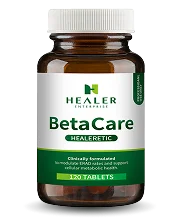
Supports Healthy Blood Sugar Management
Clinically proven formula that helps regulate cellular error-correction mechanisms and maintain normal metabolic function.
Berberine reduces oxidative stress caused by excess misfolded proteins in cells
Astragaloside IV (from Astragalus) modulates autophagy and cellular clearance pathways
Activates AMPK to protect mitochondrial function
Penetrates cell membranes for powerful antioxidant effects
Neutralizes free radicals to protect cellular structures

Convenient for Daily Use
Oral Supplement
Skin Barrier Protection
Dual Pathway Activation: SEC61 / AMPK
Premium Herbal Extracts
Carefully selected and purified herbal extracts, scientifically proven to continuously support cellular metabolic energy.
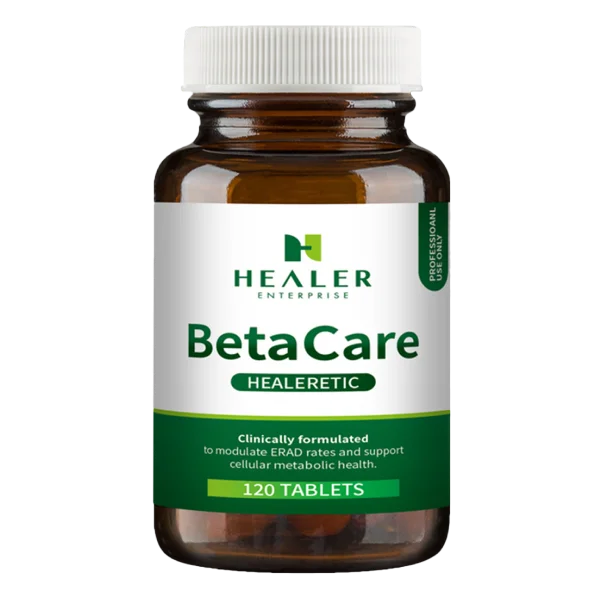

Coptis Chinensis Extract
Berberine in Coptis promotes protein ubiquitination. Through E3 ubiquitin ligase, it marks misfolded insulin proteins, directing them to the proteasome system for degradation. This helps alleviate oxidative stress caused by an excess of misfolded proteins in cells.

Astragalus Root Extract
Astragaloside in Astragalus promotes the expression of regulatory factors, such as PERK and PDI, within the ER-associated degradation (ERAD) pathway. This helps transport misfolded proinsulin from the endoplasmic reticulum to the cytoplasm for subsequent processing.

Gynostemma Pentaphyllum Extract
An affordable ginseng-grade supplement, its Gypenosides can activate AMPK, scavenge free radicals, reduce lipid peroxidation, and protect mitochondria.

Citrus Bioflavones
Bioflavonoids, small molecule phytochemicals, penetrate cell membranes to enter cells and perform redox reactions, scavenging free radicals to effectively alleviate oxidative stress, reduce protein damage, and protect cellular function and structure.

Rhodiola Rosea Extract
Rhodiola Rosea is an adaptogenic plant from the polar plateaus, containing active compounds like salidroside and rosavin, which have potent antioxidant and cytoprotective effects. Rhodiola can activate the AMPK metabolic sensing pathway, helping to regulate energy metabolism, improve insulin sensitivity, and reduce oxidative stress-induced protein damage.

Error Accumulation Marks the Start of Aging
- Gene Mutations → Faulty Proteins
Genetic mutations can lead to the production of proteins with structural or functional errors.
- Aging → Functional Decline Over Time
As we age, misfolded or dysfunctional proteins accumulate, gradually impairing various physiological functions.
- Protein Errors Can Occur Even Without DNA Mutations
Even with normal DNA, proteins may malfunction due to errors during post-translational processing.
- Protein Misfolding Is a Critical Issue
Misfolded proteins not only lose their intended function but can also accumulate within cells.
- Triggers ER Stress (Endoplasmic Reticulum Stress)
Abnormal proteins trigger endoplasmic reticulum stress, harming or killing cells.
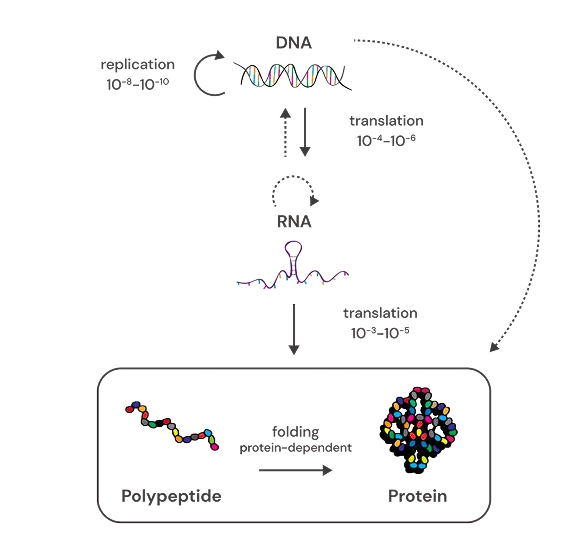

How Misfolded Proteins Lead to Degenerative Diseases
Misfolded proinsulin not only accumulates on its own, but also aggregates with normal proinsulin, reducing the amount of functional proinsulin and further exacerbating the progression of diabetes.
Ming Liu, MD, PhD1,2, Michael A. Weiss, MD, PhD3,4, Anoop Arunagiri, PhD2 Jing Yong, PhD5, Nischay Rege4 ,Jinhong Sun, MD1,2, Loona Haataja, PhD2, Randal J. Kaufman, PhD5, and Peter Arvan, MD PhD2
Published in final edited form as: Diabetes Obes Metab. 2018 September ; 20(Suppl 2): 28-50. doi:10.1111/dom.13378.

Activity Analysis of Natural Compounds Enhancing ER Degradation
BetaCare, a natural endoplasmic reticulum degradation activator
Over the past decade, we have focused on using ER degradation activity analysis to screen and evaluate natural compounds extracted through our proprietary separation techniques. One of these extracts, BetaCare, was the first to demonstrate the desired biological effect—without affecting healthy proinsulin.
As a result, BetaCare can help reduce physiological stress that leads to β-cell death, making it a strong candidate for therapeutic development.
Subsequent human clinical data have further confirmed BetaCare's ability to improve pancreatic β-cell function in individuals with diabetes.
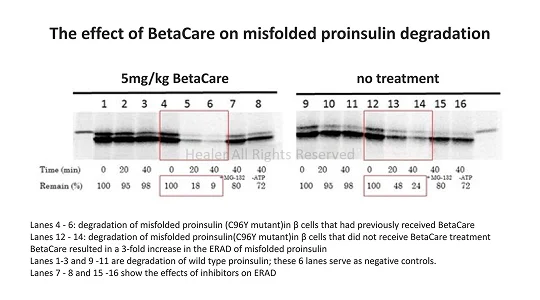
As shown in the figure, BetaCare significantly accelerates the clearance of misfolded proinsulin (compare 4, 5, 6 with 12, 13, 14).
Activity Analysis of Natural Compounds Enhancing ER Degradation
BetaCare, a natural endoplasmic reticulum degradation activator
Over the past decade, we have focused on using ER degradation activity analysis to screen and evaluate natural compounds extracted through our proprietary separation techniques. One of these extracts, BetaCare, was the first to demonstrate the desired biological effect—without affecting healthy proinsulin.
As a result, BetaCare can help reduce physiological stress that leads to β-cell death, making it a strong candidate for therapeutic development.
Subsequent human clinical data have further confirmed BetaCare's ability to improve pancreatic β-cell function in individuals with diabetes.

As shown in the figure, BetaCare significantly accelerates the clearance of misfolded proinsulin (compare 4, 5, 6 with 12, 13, 14).
Who is BetaCare suitable for?
BetaCare is suitable for individuals who are concerned about maintaining stable blood sugar levels and supporting the health of pancreatic β-cells at the cellular level—especially those with a family history of diabetes, elevated blood sugar, or prediabetes. It is also beneficial for people experiencing long-term stress, irregular diet and lifestyle patterns, or those already taking blood sugar–lowering medication who wish to further protect and support pancreatic function. BetaCare provides additional cellular protection and support, helping to slow blood sugar deterioration and maintain healthy metabolic balance.

DM POOR CONTROL
The patient's blood glucose control is not meeting targets, and there has been no active adjustment of medication; hyperglycemia persists.
Glycated hemoglobin (HbA1c) control is poor (≥8.0%).
PRE-DM OR DM
Abdominal Obesity:
Abdominal Obesity: Waist circumference ≥90 cm for men, ≥80 cm for women
Elevated Blood Pressure: Systolic Blood Pressure ≥130 mmHg, Diastolic Blood Pressure ≥85 mmHg
Low HDL Cholesterol: <40 mg/dL for men, <50 mg/dL for women
Elevated Fasting Triglycerides: >150 mg/dL
Elevated Fasting Blood Glucose: ≥100 mg/dL
HbA1c: Over 5.7%
*Referenced Indicators: 衛服部國健署
Health Promotion
Individuals with imbalanced dietary structures (including those who frequently eat out and consume diets high in sugar, carbohydrates, and fats)
Individuals with high stress and poor lifestyle habits (including those with irregular routines and excessive alcohol consumption)
Individuals with blood sugar metabolism regulation needs
Individuals with insufficient physical activity
Individuals actively engaged in health management
How To Use
1-2 capsules per dose
2-3 times a day
30 minutes before meals
Or as advised by medical personnel
Precautions: This product is not suitable for pregnant women, breastfeeding women, or individuals under 18 years of age.
If you are taking anticoagulants, second-line antibiotics, or antidepressants, please consult your doctor or pharmacist before use.
Healeretic for a More Advanced Product
We use Bioactivity Analysis to ensure each active ingredient is truly effective, stable, and highly bioavailable—while also reducing potential side effects through precise validation.More than just an extract — it becomes a verified, potent, safer, and body-ready active ingredient.

Healeretic for a More Advanced Product
We use Bioactivity Analysis to ensure each active ingredient is truly effective, stable, and highly bioavailable—while also reducing potential side effects through precise validation.More than just an extract — it becomes a verified, potent, safer, and body-ready active ingredient.


Exclusive Purification & Activity Analysis
All ingredients undergo rigorous purification and bioactivity testing to ensure exceptional purity, safety, and effectiveness
Pharmaceutical Ingredients

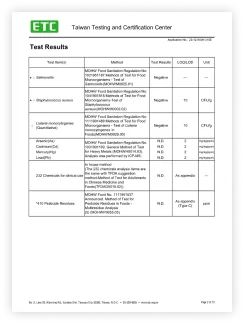
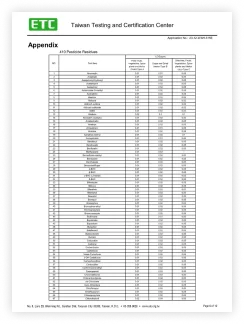
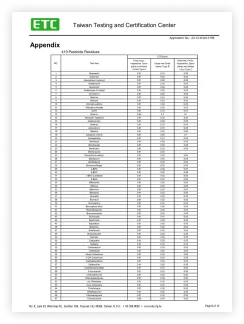
Clinical Cases
After real-world use by multiple users across Asia, BetaCare has shown significant improvements in blood glucose levels, demonstrating stable and tangible health benefits.

39-year-old woman
No family history of diabetes
BetaCare Usage Period:10 months

53-year-old woman|Educator
Long-term hyperglycemia without OHA control
BetaCare Usage Period:2 weeks

69-year-old male | Retired
Metabolic Syndrome
BetaCare Usage Period:5 months

54-year-old woman
Metabolic Syndrome, Dietary Control
BetaCare Usage Period:2 months

75-year-old woman | Retired
T2DM Poor Control with OHA Control
BetaCare Usage Period:3 months
FAQ
Studies show that the benefits of BetaCare typically begin to appear between the second and fourth week of continuous use, become more noticeable after the fifth week, and continue to improve over a period of up to three months.
BetaCare Warning
- This product is a general food. It is not intended to diagnose, treat, cure, or prevent any disease, and should not be used as a substitute for medication or a healthy lifestyle.
- Use with caution in the following situations:
- Individuals taking antidepressants, anticoagulants, anti-inflammatory drugs, or anti-rheumatic medications, or those with allergies to these or other allergens.
- Patients with impaired kidney function, such as those with renal vascular disease, congestive heart failure, reduced blood flow, major surgery, sepsis, or significant bleeding events, since the mechanism regarding kidney failure is not yet fully understood.
- Patients with impaired kidney function, such as those with renal vascular disease, congestive heart failure, reduced blood flow, major surgery, sepsis, or significant bleeding events, since the mechanism regarding kidney failure is not yet fully understood.
- BetaCare mildly inhibits the P450 enzyme system (by approximately 5–10%). Therefore, if a patient is taking second-line antibiotics, immunosuppressants, anticoagulants, or other medications with unclear interactions, they must inform their treating physician proactively.
- For concomitant use with anticoagulant drugs, please refer to the section "Precautions for Using BetaCare with Anticoagulant Medications."
